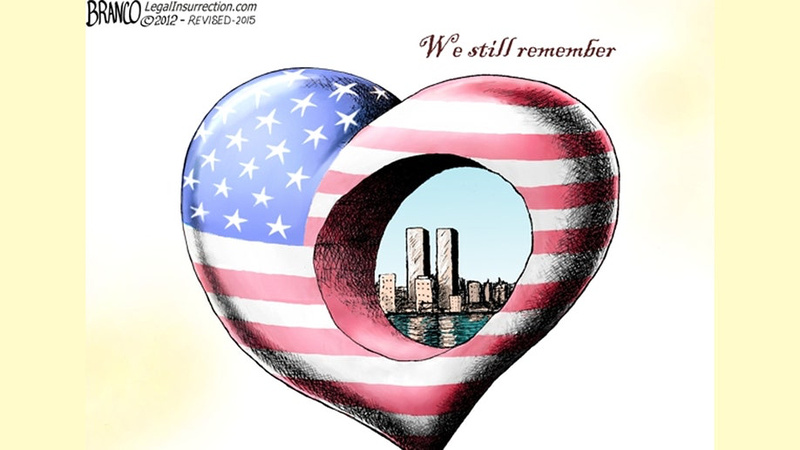Yesterday, we once again reflected on the tragic events that unfolded in our country 21 years ago. Most of us remember exactly where we were and what we were doing when two planes flew into the Twin Towers in New York City and one into the Pentagon, while another crashed in a field in rural Pennsylvania. On that day not only were 2,997 innocent lives lost, but citizens from 93 countries were victims in the attacks. Emergency responders accounted for 411 of the deaths, as well as 11 unborn babies. And, since that horrific day, more than 2,600 rescue workers who responded to the scene have died as a result of exposure to the toxins at Ground Zero.
In 2001, we were not accustomed to the horror of war. Previous wars had been fought on foreign soil, not on our sacred ground. Because there is so much pain associated with war, it is not uncommon for citizens to become angry at the perpetrators of the violence. Unfortunately, it is sometimes difficult to separate our feelings of anger at the people who inflicted the violence from other people who share the same ethnicity as the terrorists. Radical groups carried out the attacks, and they did not represent the views or beliefs of other people who share their culture or religion.
| For our children today, 9/11 is a historical event that occurred long before they were born. Our students will mark this day each year with prayer, but they did not live through the horror, and most likely cannot fully understand its significance. It is important, however, that the lessons we all learned on that day are carried forward to this generation. We have to impart in them the importance of treating everyone, no matter their gender, race, culture, or ethnicity, with respect. We need to work harder at diminishing the ugliness of racism. We all should be proud of the culture and heritage from which we came, but none of us have any right to criticize, demean, or harm those who are different from us. Our children are our future, and we must ensure they will be the leaders of a safer, kinder world by their words and actions. As William Wadsworth said, “Let us learn from the past to profit by the present, and from the present, to live better in the future.” |

In Mission,
Kathy

